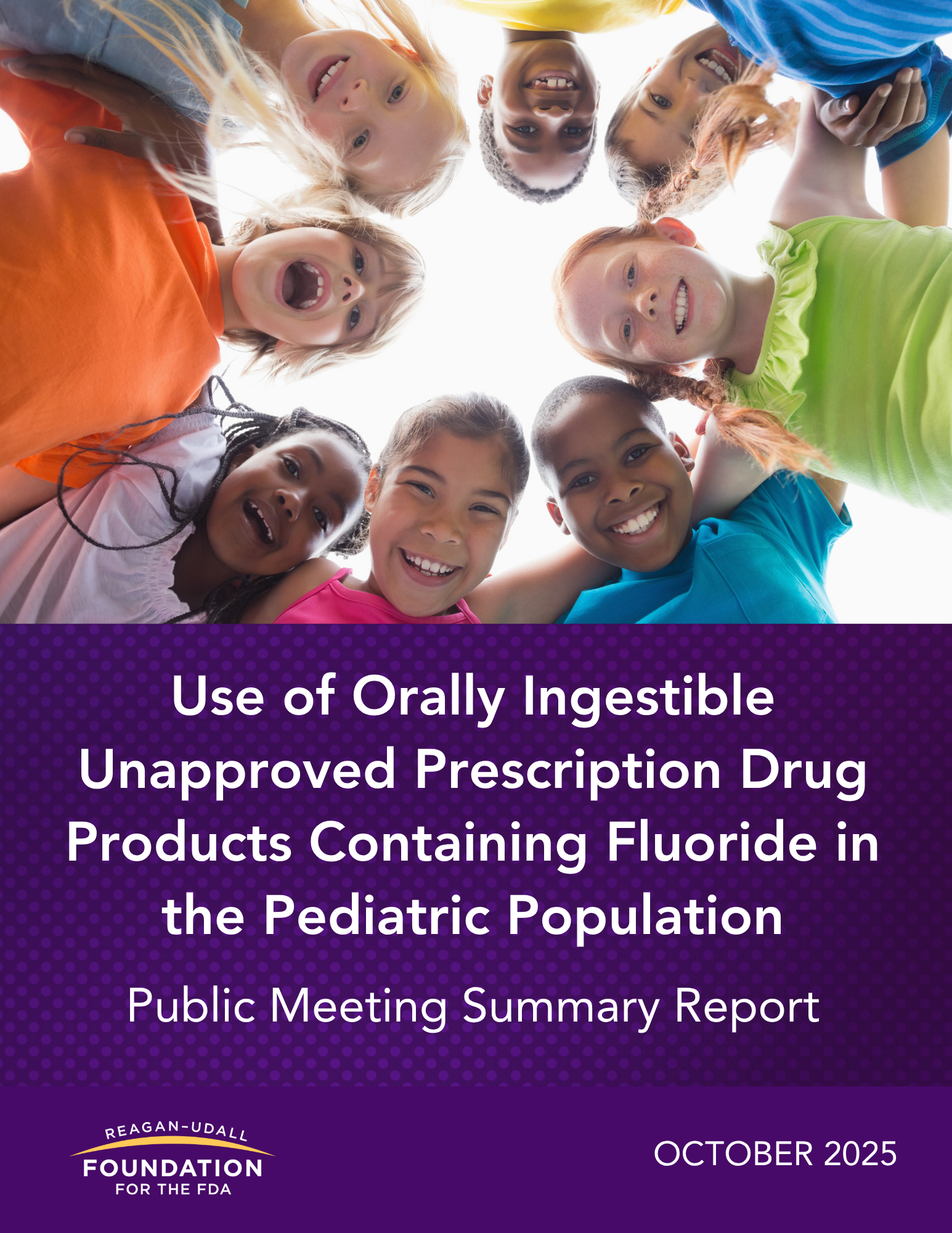The Reagan-Udall Foundation for the FDA, in collaboration with the FDA, convened a public meeting on “Use of Orally Ingestible Unapproved Prescription Drug Products Containing Fluoride in the Pediatric Population.” The meeting brought together clinicians, researchers, state and local health representatives, parents, and patient advocates to discuss the use, benefits, risks, and evidence gaps related to these products.
Across the discussion, two central perspectives emerged. Some viewed the role of ingestible fluoride drug products as a vital preventive tool to reduce pediatric dental caries, particularly in communities without consistent access to fluoridated water. Parental and some clinical experiences underscored how these products can help bridge gaps in oral health, particularly for children in underserved areas. In contrast, other clinicians highlighted concerns about potential systemic risks, including neurocognitive and endocrine effects, and pointed to uncertainties in the evidence base. These views underscored the lack of randomized controlled trials, the limited scope of existing research, and uncertainties about safe exposure thresholds. Public input demonstrated a wide range of views, including both support for these products as a preventive option and concerns regarding their safety, regulatory status, and necessity given available topical alternatives.

